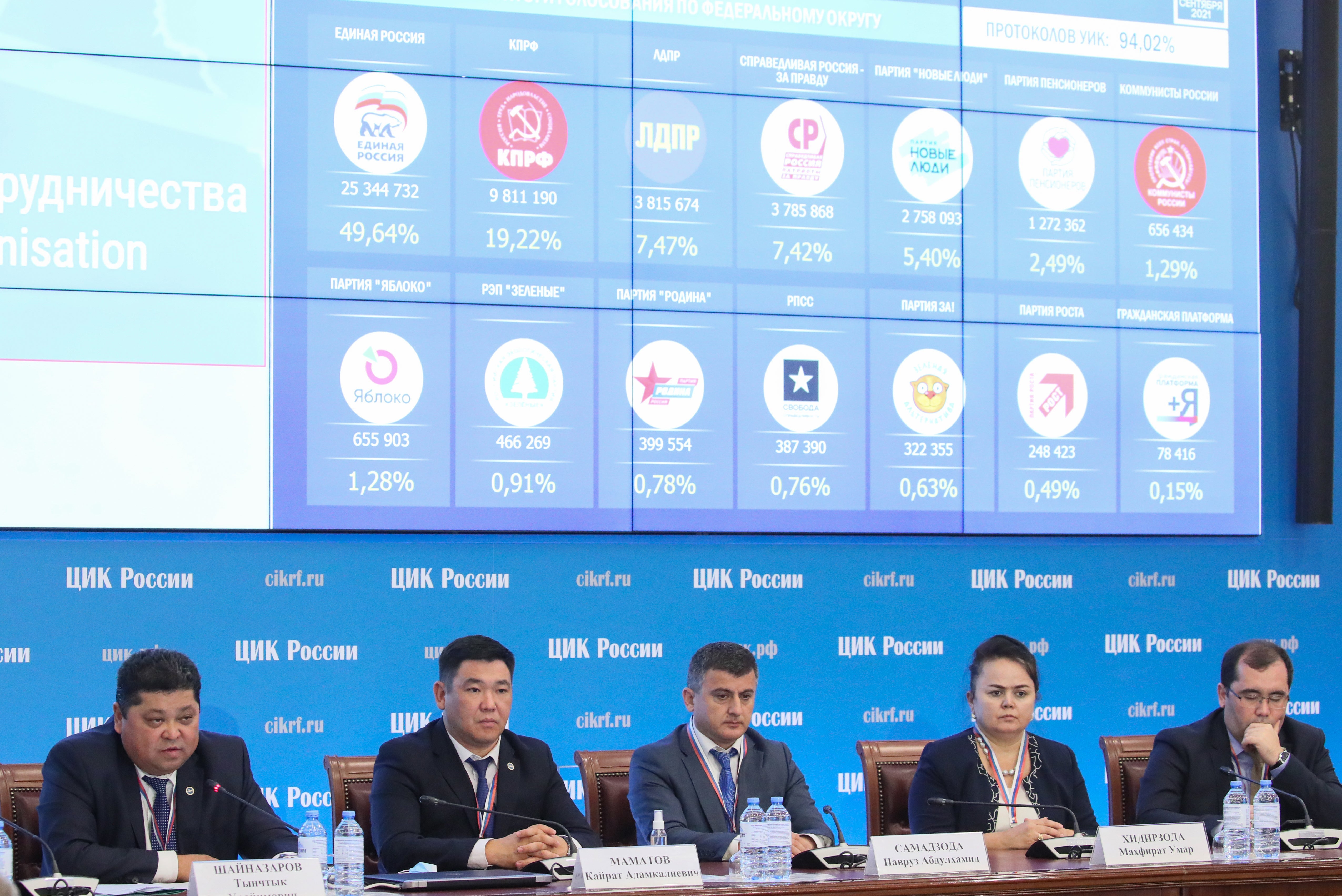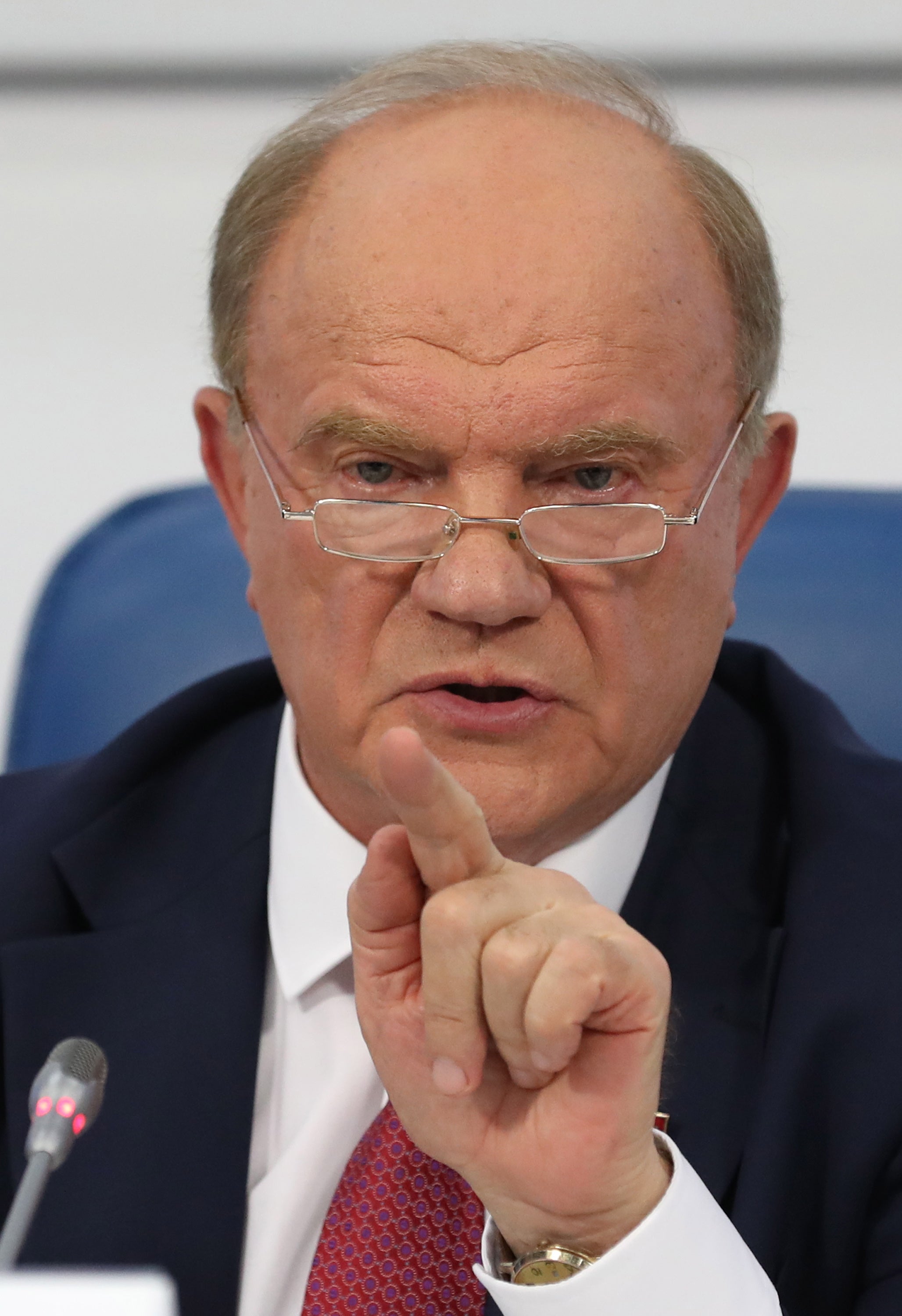Russian election: Putin’s United Russia wins landslide victory as communists contest vote
The Communist party, which came in second in official voting, is refusing to accept the e-voting results
Your support helps us to tell the story
From reproductive rights to climate change to Big Tech, The Independent is on the ground when the story is developing. Whether it's investigating the financials of Elon Musk's pro-Trump PAC or producing our latest documentary, 'The A Word', which shines a light on the American women fighting for reproductive rights, we know how important it is to parse out the facts from the messaging.
At such a critical moment in US history, we need reporters on the ground. Your donation allows us to keep sending journalists to speak to both sides of the story.
The Independent is trusted by Americans across the entire political spectrum. And unlike many other quality news outlets, we choose not to lock Americans out of our reporting and analysis with paywalls. We believe quality journalism should be available to everyone, paid for by those who can afford it.
Your support makes all the difference.Russia’s 2021 legislative elections look to be ending in a familiar fashion: with a landslide win for the Kremlin’s United Russia party and the prospect of protests in the wake of evidence of mass electoral fraud.
With 98 per cent of votes counted, United Russia will have a constitutional majority in parliament. But it achieved that result on the back of a suspiciously high 49.79 per cent popular vote – and after massively delayed results on e-voting in Moscow, which turned a number of constituencies back towards the Kremlin.
The Communist party, which came a strong second even in official voting, with 19.5 per cent of the vote, is refusing to accept the e-voting results. Valery Rashkin, the head of the Moscow party, has announced a protest at the capital’s central square at 7pm tonight, Monday.
The Kremlin meanwhile has congratulated election officials for overseeing a “positive electoral process”. Vladimir Putin prioritised the “competitiveness, transparency and honesty of elections”, his spokesman, Dmitry Peskov said.
That the election would number among the most controversial of Russia’s post-Soviet history was clear even before voting began. In the run-up to the vote, authorities launched an unprecedented campaign of intimidation and suppression of dissenting voices. All but a handful were barred from running.
E-voting was viewed as one of the most vulnerable pillars of the electoral process itself. Even as the first returns from offline voting trickled in on Sunday evening, Roman Udot, the co-chair of Golos, an independent elections monitor, told The Independent that the addition of 2 million votes nationwide was an “unknowable black box” that no one could inspect.
Returns from e-voting in Moscow, 1.2 million votes, were expected shortly after polls closed; that was the case in the six other regions to employ the same technology. In Moscow, however, something was up. Results were first delayed an hour, then two hours. When they were finally added to official totals late on Tuesday morning, they turned Kremlin losses into Kremlin wins all across Moscow.
Eduard Lysenko, head of Moscow’s IT department, said the unusual delays were caused by several “recounts”. Experts from the Kaspersky Lab, a tech company with close ties to the Kremlin, had taken the time to conduct a “multiframe and multi-vectoral check” of the validity of results, he said.

The suspicious count caught the attention of some of social media’s quicker wits. “Why did it take so long to get results from electronic voting in Moscow?” one asked in jest. Response: “Because they count the electrons manually!”
But for candidates like Mikhail Lobanov, the machinations were no laughing matter. The 37-year old maths lecturer was balloting as an independent on behalf of the Communist party in constituency number 197 in southwest Moscow. His United Russia opponent, the state TV propagandist Yevgeny Popov, made this one of the most intriguing battles across all Russia.
Mr Lobanov knew what he was up against, and led a spirited defence of his vote, haranguing election officials throughout the night. Those efforts saw him open up a sizeable lead of 11,000 votes in offline voting by the end of the count. But when the “black box” electronic voting was taken into consideration, Mr Popov magically moved the vote 20,000 the other way.
“It’s difficult to understand the message authorities are trying to send out,” the sleep-deprived candidate told The Independent on Monday afternoon.
“But it’s clear they don’t want to deal with the opinions of a large part of society. There will be no opposition in the Duma, there will be far fewer points of connection with the people, and that will inevitably lead to escalation. Mr Lobanov said he intends to coordinate with other defeated candidates to appeal for the electronic voting to be overturned.

Similar late e-reverses in favour of the Kremlin were observed in battles between the Communist party’s Valery Rashkin (24.53 per cent) and Timofei Bazhenov (38.4 per cent); Yabloko’s Sergei Mitrokhin (21.85 per cent) and Oleg Leonov (26.28 per cent); independent Anastiya Bryukhanov (23.28 per cent) and Galina Khovanskaya (28.78 per cent); and Communist party candidate Denis Parfyonov (26.12 per cent) and Dmitry Pevtsov (38.32 per cent).
The closest anyone was allowed to get to unseating a Kremlin candidate was in the Nagatinsky district, where the Communist party’s Anastasiya Udaltsova led even after 99 per cent of votes had been counted.
She was eventually placed second to United Russia’s Svetlana Razvorotnevaya.
Some of the ugliest scenes of the count were recorded in St Petersburg, a city with conflicting traditions of dissidence and ruthless law enforcement.
There, counting was also delayed for several hours. There were fights, and multiple fake bomb alerts apparently designed to evacuate everyone, including monitors, from the building. In polling station number 803 in the southern district of the city, burly men staged an even more obvious attempt to interfere, upturning and opening ballot boxes. Opposition candidates said it was an attempt to annul ballots in the democratic-leading district.
In St Petersburg as elsewhere, official returns suggest the Kremlin will successfully maintain its complete dominance of all levels of political life. The question is at what cost, and whether the authorities can ride the wave of scandal; or provoke a repeat of 2011, when hundreds of thousands took to the streets in indignation at fraud.
Tatyana Stanovaya, head of the R:Politik analytical firm, said the situation is not without risk, but appears to be less pressurised than it was in 2011. Then, popular anger was focused not only on the steal, she said, but on the return of Vladimir Putin to the top job.
“Today, society is disoriented, driven into a political depression, and without the prospect of changing course,” she said. “There isn’t the same desire to protest.”




Join our commenting forum
Join thought-provoking conversations, follow other Independent readers and see their replies
Comments